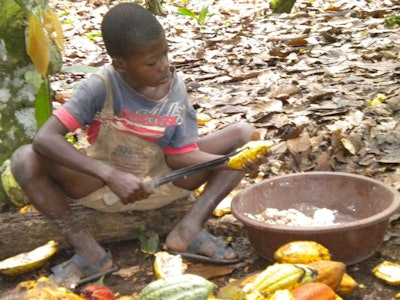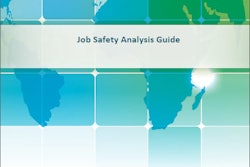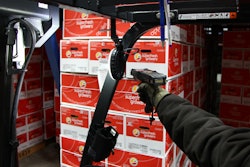
A federal judge ruled that the nation's largest chocolate companies have no duty to disclose that their cocoa suppliers use child slave labor, according to Courthouse News Service.
"There are countless issues that may be legitimately important to many customers, and the courts are not suited to determine which should occupy the limited surface area of a chocolate wrapper," U.S. District Judge Joseph Spero wrote in a pair of identical rulings related to two class actions against Nestle and Hershey.
Elaine McCoy sued Nestle and Laura Dana sued Hershey in Sept. 2015, claiming Nestle and Hershey violated California's Consumer Legal Remedies Act and the state's unfair competition and false advertising laws by failing to disclose labor abuses in its supply chain on chocolate wrappers.
A third class action was filed by Robert Hodsdon against Mars. His appeal of U.S. District Judge Richard Seeborg's dismissal is pending in the Ninth Circuit Court of Appeals.
More than 4,000 children work at forced-labor plantations in Ivory Coast to produce cocoa, according to a Tulane University study cited in the complaints. Some children are sold by their parents to traffickers, while others are kidnapped. Some migrate willingly but fall victim to traffickers who sell them to recruiters or farmers, the complaints state. The children are held against their will on isolated farms, locked away at night, threatened with beatings and forced to work long hours even when they are sick, according to the complaints.
Spero found it wasn't enough that Dana and McCoy would not have purchased Hershey or Nestle chocolate had they known about these practices.
To read more, click here.

















